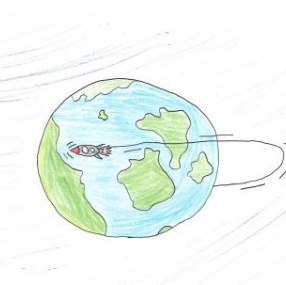Space Exploration

Space Exploration
By Charlotte Goldsmith
Space has many mysteries. Is it infinite? Do aliens exist? Are there different universes beyond our own? We, as humans, may never be able to answer these age-old questions, but we can find out more about our solar system, and others near it. In this article, I will talk about a few recent bits of news, updates and discoveries that come straight from space.
In December of 2020, the Chinese government sent a robotic spaceship to Mount Rumker, an isolated volcano on the moon. The probe landed on the same day it was sent and picked up lunar samples, which then was returned back to Earth and studied. The samples revealed that there were a few very tiny beads of water on the lunar surface. This was unusual, as all the water on the moon was thought to have evaporated billions of years ago. In recent years, however, several more missions have discovered that the moon has a lot more water than we first thought – but in the form of ice. The majority of this is found at the dark poles of the moon. NASA intends to send the first crewed mission in 50 years to the moon, to explore these unknown lands. Scientists are currently stumped on how this water got onto the moon, but researchers suggest it may be from an asteroid impact or an undetected water reservoir.
In other news, an orbital spacecraft named JUICE is set to launch on the 13th April from French Guiana and will take 8 years to reach Jupiter. JUICE will orbit Ganymede, both Jupiter’s biggest moon and the biggest moon in the entire solar system. It will orbit at the same time as another of NASA’s missions, the Europa Clipper mission, which is surveying another of Jupiter’s moons – Europa - for signs of habitability. Before orbiting Ganymede, JUICE will preform 21 flybys of the furthest away of Jupiter’s moons, Callisto. Scientists think that Callisto might have a sea underneath its surface, and JUICE will most likely answer this question. Then JUICE will orbit Ganymede, using hi-tech scientific instruments to map the surface of the moon and discover any liquid water that may be on Ganymede. JUICE might also help scientists understand why Ganymede has its own magnetic field, unlike any other moon in our solar system.





